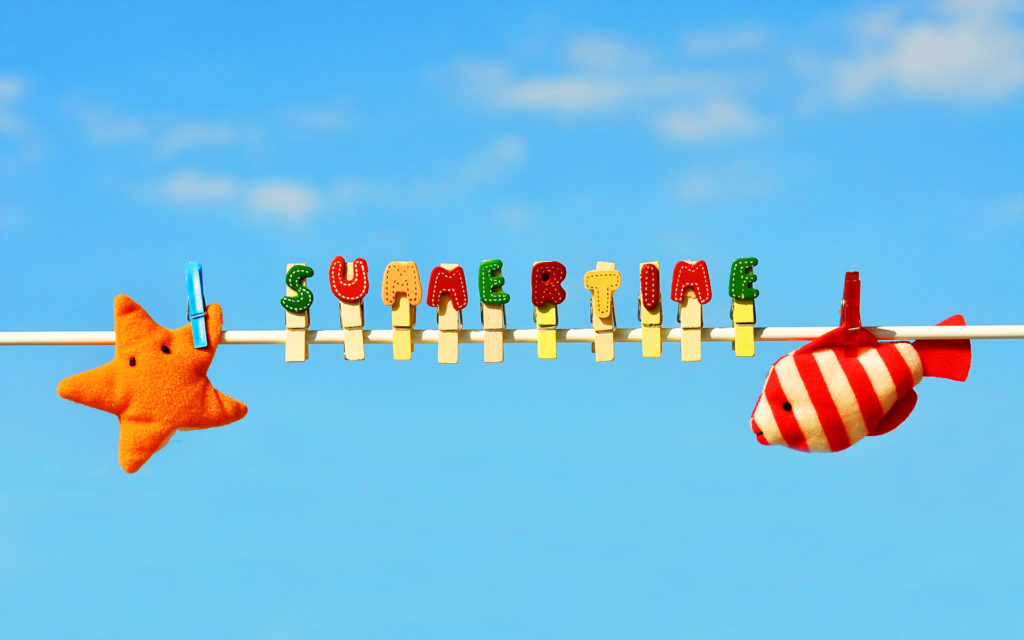
Summertime enjoyment
With the arrival of summer, our thoughts turn to poolside get-togethers, beach outings and barbecues. For some, summer may be a a lot of relaxed time of year, one where we enjoy the company of family and friends in the outdoors. For others, now of year brings pressures to slenderize or strengthen in preparation for bathing costume and shirt weather. And it’s no wonder.
Advertisements for diet and exercise product showcase ideal swimsuit bodies, and tabloids harshly rate appearances, with articles like the “Best and Worst Celebrity Beach Bodies.”
As a psychiatrist specializing in the treatment of anorexia, bulimia and other eating disorders, I see how summertime presents a unique challenge for individuals who struggle with body image. Even for those with a healthy body image, beach “body ideal” can spark feelings of inadequacy and depression. In some cases, particularly among individuals with a family history of eating disorders and those with perfectionistic, people-pleasing and reward-dependent personality traits, seasonal pressures to lose weight can trigger unhealthy behaviors related to dieting and exercise.
In fact, several disorder treatment professionals observe a rise in patients and families needing disorder support because the weather heats up, and we shed our sweaters for shorts and swimsuits.
For youths and teens—and even young adults—the desire to lose weight to look good in skimpy summer fashions is not the only factor that can trigger an eating disorder. Young people World Health Organization ar a lot of possible to develop feeding disorders like structure and sure thing, yet summertime’s unstructured “down time” takes the place of normal daily routines.
Additionally, summer is filled with milestones related to adolescent separation, attachment and “launching”—spending the summer away from home at camp or on a trip, preparing to leave home for college in the fall or graduating from college and entering the “real world.” These changes, transitions and new situations can result in anxiety and feeling out of control, triggering coping mechanisms in an effort to regain a feeling of control.
Dieting (including restricting calories, eliminating foods or whole food groups or purging calories) as well as excessive exercise helps alleviate this anxiety. Young people will simply management their calorie intake and energy output, oftentimes in secret and without drawing the attention of friends or loved ones. While these behaviors can be unhealthy and dangerous as a coping skill, they are difficult to identify in a culture that encourages and applauds dieting, exercise and weight loss.
To create a healthy summer setting, suppose on the far side losing weight to attain the in demand beach body and instead take steps to nurture your physical, emotional and non secular health.
Consider these five tips for a healthy summer season:
- Get moving. Try a new activity—find a yoga class for relaxation, go dancing with friends or play volleyball on the beach—with the goal of finding joy and connection with yourself, others and nature, not losing weight. Identify physical activities that cause you to feel good—physically, showing emotion and spiritually.
- Find your happy.If achieving a healthy weight or getting stronger is your goal, you’re more likely to be successful and less likely to develop an eating disorder if you are nurturing your emotional health as well. For those those that struggle to disengage from the robust seasonal pressure to turn, think about this—studies recommend a correlation between a positive emotional standing and healthy weight.
- Take time to “stop and smell the roses.” It’s easy to get so caught up in our physical appearance or the appearance of others that we forget to enjoy the moment. At the beach, don’t worry about how you or others look in a bathing suit. Instead, focus on the sun’s warmth on your skin (protected by sunscreen, of course!), the salty sea air smells and the sounds of crashing waves and kids laughing as they build sand castles.
- Stay hydrated. The simple act of drinking sufficient water throughout the day supports overall health. In fact, research suggests a connection between proper hydration and a healthy body weight. And, adequate association permits North American country to interact meaningfully in season activities.
- Make time to check in. Especially for adolescents and young adults, summer brings changes to the standard routines. Make time to talk to the young people in your life and discuss feelings related to seasonal changes and milestones, such as fear, anxiety, depression or a perceived loss of control. Identifying unhealthy coping strategies early means you can get help early.



